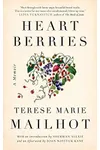Picture a First Nation storyteller who turned raw pain into poetic brilliance—meet Terese Marie Mailhot! This Canadian author’s memoir, Heart Berries, became a New York Times bestseller, captivating readers with its unflinching honesty and lyrical prose. From the Seabird Island Band to literary stardom, Mailhot’s voice shines as a beacon for Indigenous experiences, blending trauma, humor, and hope.
Born into a world shaped by intergenerational trauma, Mailhot’s journey is one of survival and artistry. Her work as an author, journalist, and educator bridges cultural gaps, offering profound insights into First Nation life while inspiring diverse voices in literature. Let’s dive into her remarkable story!
The Making of Terese Marie Mailhot
Terese Marie Mailhot was born on June 15, 1983, on the Seabird Island First Nation reservation in British Columbia, Canada. Growing up Nlaka’pamux, she faced a turbulent childhood marked by poverty, foster care, and abuse. Her mother, a social worker and activist, and her father, an artist with a troubled past, shaped her early life. Despite these challenges, Mailhot’s resilience led her to the Institute of American Indian Arts, where she earned an MFA in fiction. Her early career included editing at The Rumpus and writing for outlets like Indian Country Today, setting the stage for her literary breakthrough.
Terese Marie Mailhot’s Unforgettable Stories
Mailhot’s debut, Heart Berries: A Memoir (2018), is a poetic powerhouse. Written during a hospitalization for PTSD and bipolar II, it explores her dysfunctional upbringing, mental health struggles, and reconciliation with her parents’ legacies. The memoir’s raw, fragmented style—described as a “sledgehammer” by The New York Times—weaves pain with wry humor, earning praise from Roxane Gay and Emma Watson, who selected it for her book club.
Beyond Heart Berries, Mailhot’s essays and journalism shine in publications like Guernica, Mother Jones, and The Guardian. Her work often tackles Indigenous identity, sexual abuse, and colonial oppression, subverting stereotypes with vivid imagery. She also co-edited Yellow Medicine Review, a journal amplifying Indigenous voices. Mailhot’s style is fearless, blending vulnerability with sharp wit, making her a standout in contemporary memoir.
While Heart Berries remains her flagship, her essays like “I Used to Give Men Mercy” in Guernica showcase her ability to distill complex emotions into concise, impactful prose. Each piece feels like a conversation with a trusted friend—honest, unsettling, and deeply human.
Why Terese Marie Mailhot Matters
Mailhot’s impact transcends literature. As a First Nation woman, she challenges colonial narratives, giving voice to Indigenous experiences often silenced. Her memoir resonates with survivors of trauma, offering hope through storytelling. Awards like the 2019 Whiting Award and the Spalding Prize for Peace and Justice affirm her influence. As an educator at Purdue University, she mentors aspiring writers, fostering a new generation of diverse storytellers. Mailhot’s work is a call to see the humanity in pain, making her a vital figure in modern literature.
- Birth Date: June 15, 1983
- Key Work: Heart Berries: A Memoir (2018)
- Awards: 2019 Whiting Award, Spalding Prize for Peace and Justice
- Notable Publications: Guernica, Mother Jones, The Guardian
Snag Heart Berries and dive into Terese Marie Mailhot’s raw, poetic world! Her words will linger long after the last page.
